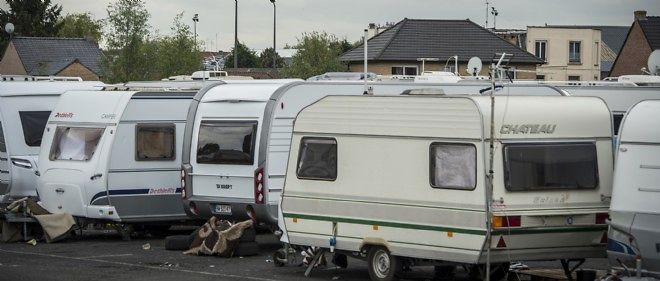Roma and Travelling populations living in Belgium have the widest lifespan gap compared to the general population among five EU countries.
A survey by the European Union's Agency for Fundamental Rights (FRA) showed that the lifespan of both Roma and Travelling men and women in Belgium shrank by as much as 14 years when compared to that of the country's general population.
The survey polled over 4,000 people over the age of 16 in Belgium, the Netherlands, the UK, France, Ireland and Sweden who self-identified as Roma or Travellers on their experience with discrimination in areas ranging from education and the labour market to access to health care and decent housing.
Related News
- Inclusion of Roma in the EU, 'a priority' for the new European Commission
- Roma integration still far away in EU
- EU auditors slam shortcomings in Commission support to Roma integration
Overall, the survey found that the life expectancy of Roma and Travellers in the six countries surveyed was "much lower" than that of the general population, by, on average 9.8 years for women and 10.2 for men.
The countries where the lifespan difference was the smallest was in the UK (7.1) when it came to women and in France (7.9 years) when it came to men.
In Belgium, the agency interviewed a total of 606 respondents in Brussels and Flanders who identified as either Roma or Caravan dwellers, "two very distinct groups" who are also present in the Netherlands.
The number of Roma or Caravan dwellers living in Wallonia is "unknown," according to the survey's results, and they were not or only partially polled for the survey.
The survey found that, overall, almost half (44%) of survey respondents had experienced hate-motivated harassment in the year preceding the survey and that 7% had been physically attacked "because of being Roma and Travellers."
"Hate motivated harassment is highest in the Netherlands where 83% of Roma say they experienced harassment because of their ethnic background," the survey found.
Job and housing discriminations
Respondents of the survey in all six countries reported being most commonly discriminated against when trying to access goods or services such as entering shops (33%), restaurants, bars or hotels (27%) and when looking for a job (23%), with some respondents giving accounts of losing their job once their ethnic background became known.
A 24-year-old respondent in the Netherlands who used to work in a court told of how she had to change jobs after facing discrimination at work "for living in a trailer."
"This was a job at the court as a legal administrative assistant for which I studied for a long time. It should not matter what my home address is if I have done the right training and am suitable for the work that I do," she said. "I feel that, if they had known my address before I was hired and proved my competences, they would not have hired me in the first place."
Other respondents also told of how they were discriminated when trying to access the housing or job market, with one respondent in Sweden saying they had to change their Romani surname to a Swedish-sounding one their bid for a property was continuously denied.
"It is difficult to get work, I couldn't even get work in a charity shop as a volunteer," one respondent said, adding: "A wedding got cancelled once because they found out that the attendants were travellers. Sometimes when we go to restaurants they tell us there is a two-hour wait and only when we refuse to leave do they ‘find’ us a table."
The FRA conducted 4,659 face-to-face interviews for the survey, which was carried out between December 2018 and July 2019 and commissioned by the European Commission to fill in data gaps regarding the Roma and Travelling populations in this six countries.
Gabriela Galindo
The Brussels Times

